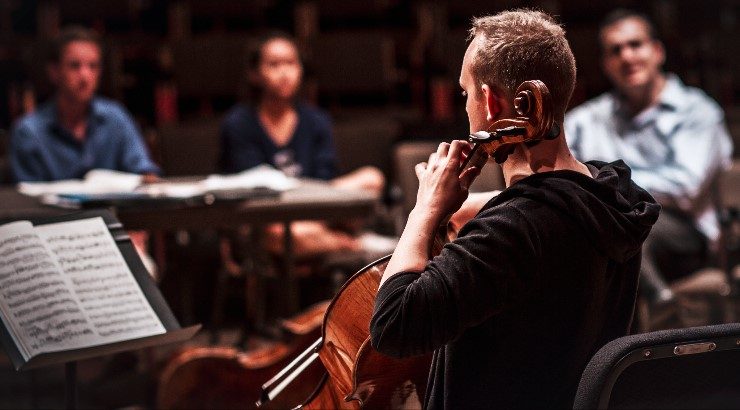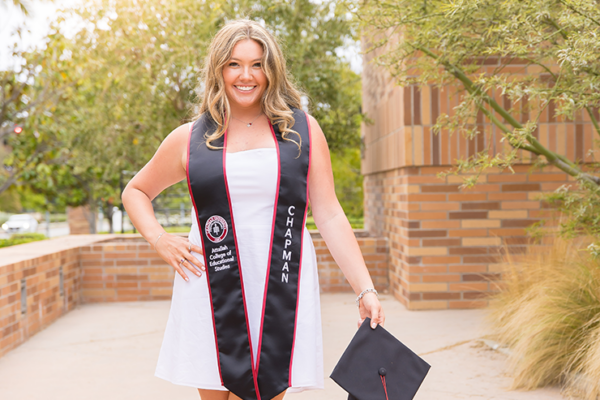You studied music for years. Sharpened your performance skills and earned excellent grades. All while toting that instrument to and from countless lessons, rehearsals, concerts and recitals. Now comes the last step in your high school music career as you vie for a coveted spot at a college or university conservatory – auditions.
Nervous? That’s normal. But with planning, you can minimize the jitters and put your best self forward so that faculty judges can see that you’re exactly the kind of student they want in their program. Here are tips to help you succeed at every audition.
Review the audition repertoire posted by each school where you plan to audition. See if there are pieces that each school requests and try to build a set that will fit every school’s expectations. “Those lists are pretty darn similar for every school. Try to find a set of music that you can use at each audition and that you know will show your strengths,” says Jeremy Davalos ’21, who graduated from Chapman University’s Hall-Musco Conservatory of Music with a double major in trumpet performance and music education.
If you live near enough to the campus, consider scheduling a private lesson with one of the professors who teaches your instrument. “At most schools, that’s a good way to start a relationship with the faculty,” says Timothy Hall, director of Woodwind and Brass Studies at Chapman. Those connections can be helpful if nerves do strike at the audition because that faculty member who knows your real skills may be able to offer judges the benefits of that insight, he says.
Discipline yourself to work a couple of hours every day on those admissions essays during summer so that you have more time in the fall to practice, practice, practice. “Visualize playing in front of stuffy professors with clipboards,” Hall says with a laugh. “Actually, we’re very nice, but that kind of mental rehearsal helps with the nerves.”
That practice schedule will serve you well for the final push. Reserve the last two weeks for just running through the music, getting everything to happen in order, back to back, without stopping.
- Slow the practice pace a couple of days before the audition to avoid fatigue, especially if you play a wind or brass instrument. Davalos made the error of running a four-hour jazz band practice the Friday afternoon before a Saturday morning audition. A sore face and swollen lips made for “probably my worst audition,” he says.
- Familiarize yourself with the audition-day logistics. The school will likely provide parking directions, but look at the campus map ahead of time anyway. Go old school. Print out the map and circle the music building and parking lot just in case cell service gets wonky and that saved link won’t open.
- Think about how you’ll answer this question: “Why do you want to study here?” No need to script an answer. Be yourself, Hall says, but give it enough thought so that you present yourself as a serious candidate.
- Make time for your first warm up to be at home. “Home is the safe, quiet, peaceful environment where things are familiar. You don’t want the first notes of the day to be right before the audition,” Davalos says.
- Don’t skip breakfast. Dress sharp.
- And last but not least. Assume there will be traffic and leave early so you can arrive unhurried. Then relax a little, warm up a little and step into that audition room confident that you have done everything possible to shine in this moment.




